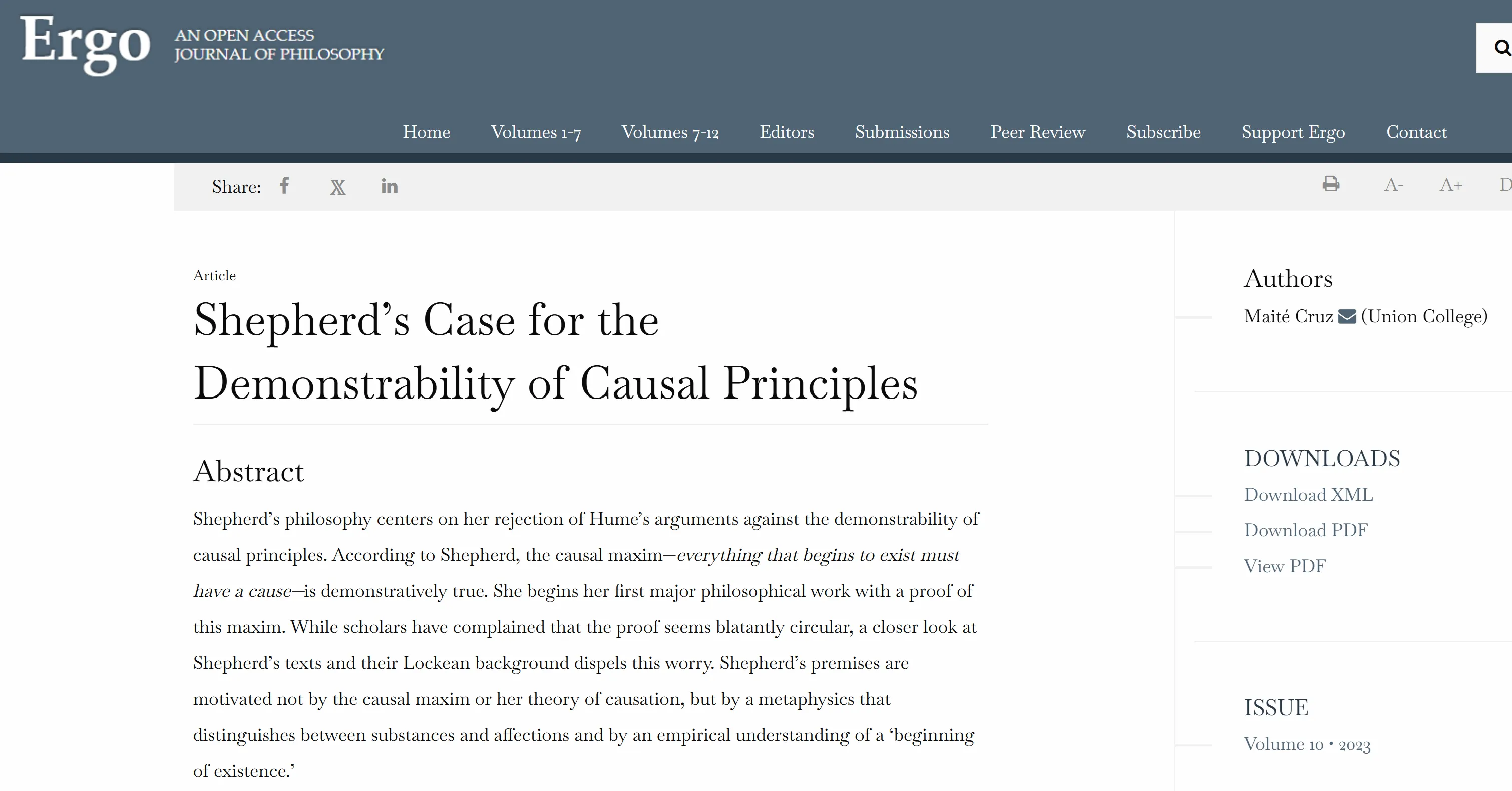Shepherd’s Case for the Demonstrability of Causal Principles

Shepherd’s philosophy centers on her rejection of Hume’s arguments against the demonstrability of causal principles. According to Shepherd, the causal maxim—everything that begins to exist must have a cause—is demonstratively true. She begins her first major philosophical work with a proof of this maxim. While scholars have complained that the proof seems blatantly circular, a closer look at Shepherd’s texts and their Lockean background dispels this worry. Shepherd’s premises are motivated not by the causal maxim or her theory of causation, but by a metaphysics that distinguishes between substances and affections and by an empirical understanding of a ‘beginning of existence.’
-with support from Working Group PCT3 Upstate New York Workshop in Modern Philosophy